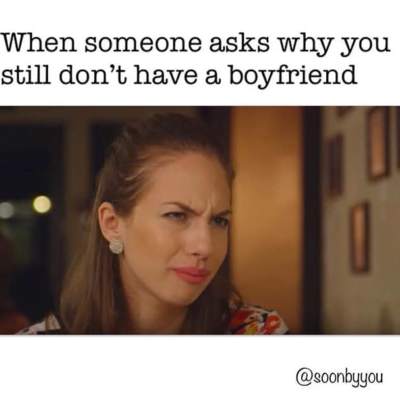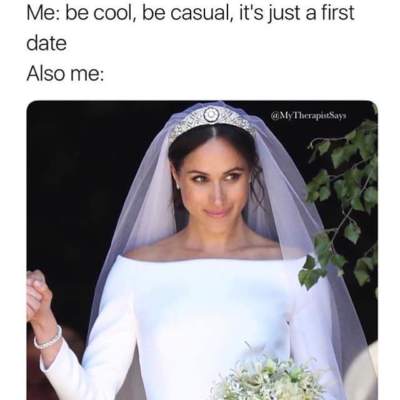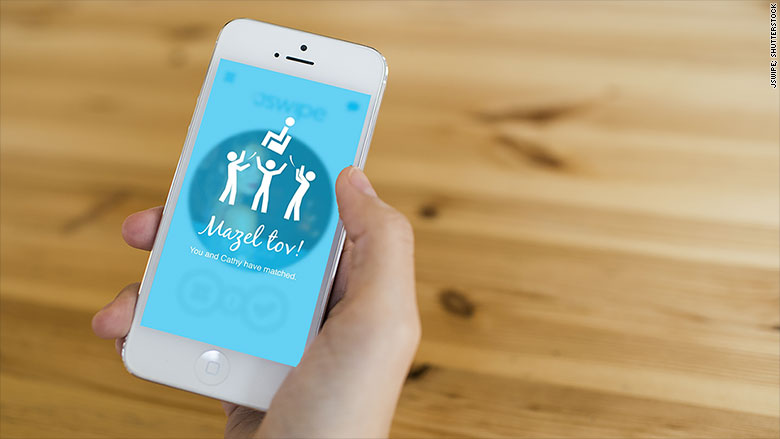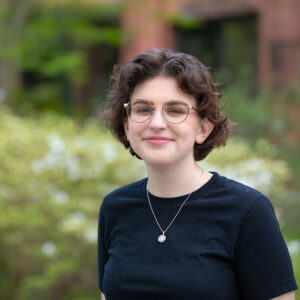We’ve come a long way since the days when a matchmaker was the main way for a young Jewish person to find romantic connection. Now, in the middle of a milieu of anxieties about assimilation, continuity, and online dating, young Jews no longer have such a clear guide to finding love.
For many millennial Jews, though, parental pressure still looms large over their romantic lives. The fears surrounding interfaith marriage that permeate the Jewish community, alongside an idea that dating Jewish is “just easier,” prompts many parents to urge their children to exclusively date other Jews.
Claire Siege, a sophomore at Wellesley College, grew up hearing these messages. In her family, she says, dating Jews is not so much of a rule, but “more of a strong recommendation.”
Last fall, Siege dated someone for a month (“he’s Catholic, I think,” she said). When she called her mom to tell her that he broke up with her, her mother offered the following comfort: “It doesn’t matter anyway, because he’s not Jewish.”
The idea that serious relationships are easier to form with Jewish people does carry a grain of truth for Siege. As someone who spends much of her time engaged in the Jewish community, she can find it difficult to connect to people who have no knowledge of how she spends her days.
‘”It’s definitely weird being on Tinder and people are like, what do you do? And I say I go to Hillel, and they’re like, what’s Hillel?” Siege said. She feels that much of her time on dating apps like Tinder is spent just trying to educate people on who she is. “Some people are like, so what do you guys do? What do Jews do? What is Judaism? I feel like that…takes up such a huge part of the conversation sometimes.”
Some young Jews, however, don’t feel the compulsion to date other Jews at all. Sarai Hertz-Velázquez, a first-year student at Wellesley, says she has never dated another Jewish person. “It doesn’t really matter to me.” Hertz-Velázquez said. “I mean, it would be nice if they could say hamotzi, but you know, it’s whatever.”
As Hertz-Velázquez herself comes from an interfaith family, she believes that pressure to date “within the faith” must be stronger within families who have no known no other way. “I’ve never really thought about it myself…people do it because of their parents and grandparents, I think,” she said. However, regardless of the causes, many young Jews will go to great lengths to find other Jews to date.
Dating apps and websites such as JDate and JSwipe have sprung up over the past two decades to cater to Jews who only want to date other members of the tribe. JSwipe, in particular, is essentially a Jewish-only Tinder, even using many of the same formatting tricks as the more well-known app — the swiping motion required to select whether you’re interested in someone, the way the person’s age and distance from you is visible on their profile, and so on — but with different fonts and a noticeably smaller clientele.
JSwipe bills itself as the #1 Jewish dating app, with users in over 70 countries. (In the App Store, the app’s description reads: “We make finding that special someone you take home for matzo ball soup as fun as it should be. Find your long lost love from summer camp and start to meet Jewish singles today!”) (Siege, personally, does not use JSwipe because, as she says, “there’s not that many people on it, and they’re all kinda weird”).
Especially for more observant young Jewish people, for whom the pressure to date and get married can be quite strong, it can be difficult to find roadmaps or role models to explain how to navigate the dating world. There are very few representations of religious Jews in the mass media, according to Dr. Karen E.H. Skinazi of Rutgers University, who completed a study of the portrayal of Orthodox Jewish women this year.
“What is lost in the mainstream media representations is this: Orthodox girls and women were (and are) not all sitting silently in their dun-colored, floor-length, appropriately fastened clothing at the back of the bus or locked in their homes, despairing their helpless fate,” Skinazi wrote. Instead, much of Modern Orthodox culture is vibrant and thoroughly connected to the outside world while retaining ancient traditions.

Leah Gottfried showcases the influence of tradition in the dating lives of young Orthodox Jews in her TV series “Soon By You,” available on YouTube. The series follows a group of young people around New York and shows their adventures in the dating world in a sitcom style.
Gottfried got the idea for her TV show after being introduced to the Israeli TV show Srugim, which follows a group of young Orthodox Jews in Israel as they try to find love. “I remember loving the feeling of seeing characters like myself represented in a show,” Gottfried said. “As a filmmaker, that’s one of my goals, to tell stories of people who don’t often see themselves on-screen.”
In her show, she tries to show both the good and bad sides of dating within the Orthodox community. She emphasizes repeatedly in the show the way young people can feel pressured by their families to find someone to marry — someone who, it is assumed, will be from inside the community. In the first episode, the main character finds herself harassed by her mother to please, please just go on another date with the man who her mother has found her, even though that man might not necessarily be her type.
Orthodox Jews are not the only ones who are often focused on marrying within the faith. David Yarus, founder of the dating app JSwipe, is one of them. Yarus identifies as ‘post-denominational Jewish’ and says that he has made many important life decisions based on the possibility of finding Jewish girls.
“I moved to New York in 2010 for a dream job…and to meet a nice Jewish girl,” Yarus said. “I moved to the Upper West Side, because I was told that that’s where they all lived…and, to be honest, it was both unbelievably socially uncomfortable…and not particularly effective.” Despite Yarus’ best efforts (going to Shabbat dinners, hosting meals regularly), he was unable to date successfully using the traditional methods. So he decided to try something different — creating a dating app. (As of the writing of this article, Yarus has not found a nice Jewish girl).
“I think for young people who aren’t married at a certain age, they can feel like people kind of pity them, or think of them a bit as an other. They aren’t so included in things because it’s such a family-oriented culture,” Gottfried said. Dating under that kind of pressure is a real challenge, she said. “I’ve had friends who talk about going on a first date and looking across and being like, ‘Okay, is he my husband? How do I know?’”
Rachel G. (not her real name), a student at Wellesley College, who grew up as the daughter of a conservative rabbi, knows this pressure well. Ever since she was young, she has been told by her parents that she is expected to marry a Jewish person.

When she was five, she had a crush on a boy named Yoni in her Jewish day school class. Her mother’s response, she said, was: “Oh he’s such a nice Jewish boy! He’d make an excellent husband.”
When Rachel had her “first real boyfriend” in the sixth grade, a non-Jewish blonde and blue-eyed boy named Cameron, her mother quickly put a stop to it. “I told my mom,” Rachel said, “And she was like, ‘He’s not Jewish! It’ll be such a shanda [Yiddish for shame]. And I was like, damn, mom, I’m eleven, I just got my period two weeks ago. But that was when I was made aware that…this is what we do.”
So, when Rachel’s older sister told the family this year that she was dating a lapsed Catholic woman, her mother was less than happy. Not because her daughter was dating a woman, but because that woman was not Jewish.
“They were very supportive when me and my sister came out,” Rachel said. “But their thing was, you can date girls, they just have to be Jewish.”
It is not clear how open the world of Jewish dating is to LGBT people. According to David Yarus, the founder of JSwipe, the app has a “a rising LGBT community” of 10-15% of users. (The app has settings for women seeking women, and men seeking men). However, the app, like every other Jewish dating app currently available, does not offer gender options other than “male” and “female,” excluding people with other gender identities. When asked if that would change in the future, Yarus said “sure, anything’s possible.”
Right now, more and more Jews are choosing to marry partners who are not Jewish. However, it is clear that many within the Jewish community still value an idea that Rachel, David Yarus, and Claire Siege each brought up individually: “shared values.” For Rachel, this primarily means a base of religious understanding; the idea that if you date other Jews you won’t have to explain yourself to them. “Shared values” is the phrase used by both Rachel and Siege’s parents to provide guidance in dating, and by Yarus to explain why apps like his have appeal.
Rachel believes that for many, this phrase, and the accompanying pressure to date Jewish, has a racialized component to it. “I think when people say you can only date Jews, there’s this coded message of like, you can only date white people, because people assume that there are no Jews of color.” She imagines that if Jewish friends of hers brought home a partner who was a Jew of color, their parents might question that person’s Jewish identity. It’s a “kind of intense questioning that white Jews don’t get,” she said.
Nylah Burton, a Black Jewish writer, says that exclusion and racism from white Jews has affected her family’s choices about where they want to be involved in the Jewish community. She is in a long-term relationship with a Christian man, who, Burton says, “considered converting for a short period of time, but quickly changed his mind” due to the racism that he saw within the white Jewish community.
“He now says he’d never convert because he wouldn’t want to subject himself to the racism he’s seen me go through. When we talk about how we’ll raise kids, he’s very clear about not wanting to raise his kids in the white Jewish community but only with JOC-majority spaces. I understand his perspective, and agree, but it’s saddening because those spaces are hard to find,” she said.
While dating within the community might be a value held tightly by much of mainstream Judaism, many — Jews of color, queer Jews, and others — are left wondering where they fit within that framework, and whether the traditional avenues for finding partnership (or even the newer innovations, such as dating apps) have room for them.
As Rachel put it, “this is what we do”: the practice of Jews dating Jews goes deep. But it’s becoming increasingly clear that the models of traditional Jewish dating that have served us for so long no longer serve all Jews well. What we do – and what we want – is changing. And without matchmakers, it’s up to us to go after it.
Sophie Hurwitz is a student at Wellesley College majoring in history and working as news editor at the Wellesley News in her spare time. She was born and raised in St. Louis, Missouri.
Featured image credit: JSwipe/Shutterstock.com

